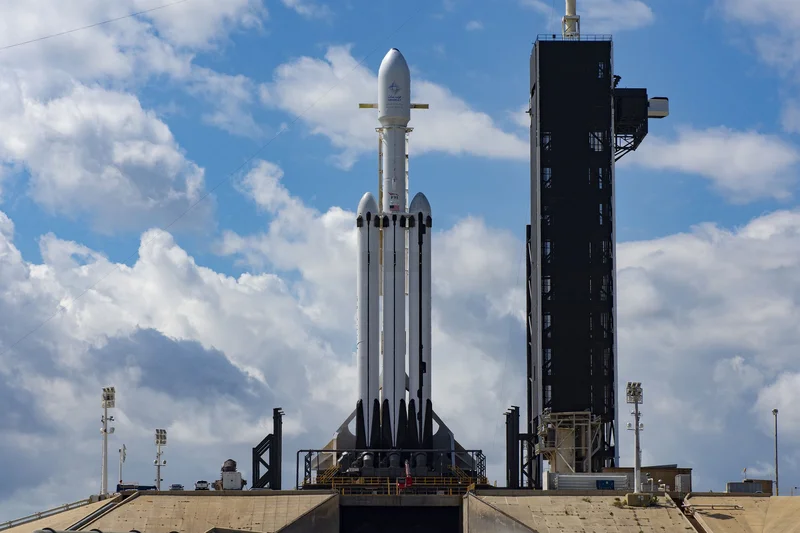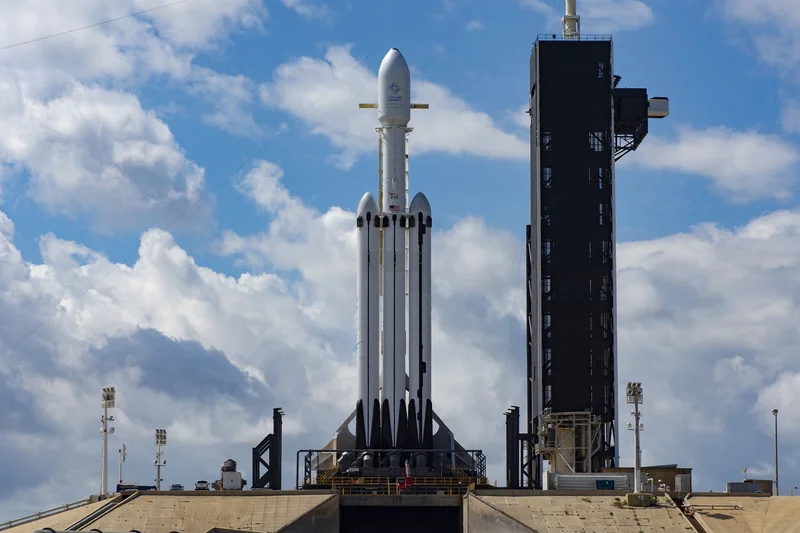SpaceX Launch: What's the Schedule and Where's the Liftoff in California?
Sentinel-6B: Another Ocean-Monitoring Satellite, Another Band-Aid on a Sinking Ship
So, another satellite launch. Big deal. SpaceX did its thing, Falcon 9 aced the landing (again), and Sentinel-6B is now floating around up there, "monitoring" the oceans. And we're all supposed to feel better about the impending climate apocalypse? Give me a break.
The Illusion of Control
Let's be real: these ocean-monitoring satellites, like Sentinel-6B, are glorified data collectors. They measure sea levels, wave heights, wind speeds... okay, great. We get more graphs and charts telling us exactly how screwed we are. But what actual action is this data driving? Is it stopping coastal erosion? Reversing ocean acidification? Nope. It's just giving governments and corporations more precise numbers to justify their inaction.
"The new Sentinel-6B spacecraft will ensure the continuation of over 30 years of uninterrupted data recorded..." Oh, joy! Thirty years of meticulously documenting our demise. It's like carefully cataloging the furniture as the Titanic goes down.
And the collaboration! US and European agencies patting themselves on the back for working together. "A collaborative effort between space and environmental agencies on both sides of the Atlantic." Meanwhile, the planet's heating up faster than a microwave burrito, and international agreements are about as binding as wet tissue paper.
I mean, offcourse, I'm glad they're measuring something. But let's not pretend this is anything more than a sophisticated form of climate voyeurism. We're watching the disaster unfold in high-definition, but we're not doing jack squat to stop it.
Falcon 9: The Workhorse of the Apocalypse
Gotta hand it to SpaceX, though. They've turned launching satellites into a routine. Booster B1097.3, making its third flight? Landing Zone 4 at Vandenberg? Yawn. It's almost boring how reliable they've become. SpaceX plans rocket launch from Vandenberg. Where to see liftoff in California
But here's the kicker: all these launches—Starlink, Sentinel-6B, whatever—they're powered by rockets. Rockets that spew exhaust into the atmosphere. So, we're launching a satellite to monitor climate change using a technology that contributes to it. Does anyone else see the irony here? Or am I just losing it?

And the FAA curfew! Restricting launches to between 10 p.m. and 6 a.m. because... reasons. Bureaucracy at its finest. As if shifting the launch time a few hours is going to make a lick of difference to the planet.
The article mentions that SpaceX may increase launches from Vandenberg in 2026. Great. More sonic booms, more rocket fuel, more data points to confirm our worst fears. What's the plan, folks? Are we going to measure ourselves into oblivion?
The Bigger Picture: Starship and the Mars Fantasy
Speaking of SpaceX, let's not forget the real reason Elon Musk is doing all this: Mars. He wants to build a colony on another planet while this one burns. And NASA's helping him do it, tapping Starship to be a lunar lander for the Artemis missions.
So, while Sentinel-6B is diligently tracking rising sea levels, SpaceX is busy building a giant escape pod for the ultra-rich. It's the ultimate "screw you" to the rest of us.
Don't get me wrong, space exploration is cool and all. But maybe, just maybe, we should focus on fixing the planet we already have before we start trashing another one.
But hey, what do I know? Maybe colonizing Mars will magically solve all our problems. Maybe there's a secret stash of carbon-capture technology hidden under the Martian surface. Or maybe—just maybe—we're all being sold a load of BS.
We're Just Rearranging Deck Chairs
Look, I get it. Climate change is a complex problem with no easy solutions. But launching another satellite, collecting more data, and patting ourselves on the back for "collaborative efforts" isn't going to cut it. We need real action, real change, and a whole lot less corporate PR. Until then, Sentinel-6B is just another expensive distraction from the fact that we're all pretty much doomed.
Related Articles
SpaceX Launch: Schedule, Falcon 9, and What We Know
Generated Title: Sentinel-6B: A $500 Million Thermometer? Let's See the Data. The Sentinel-6B satell...
